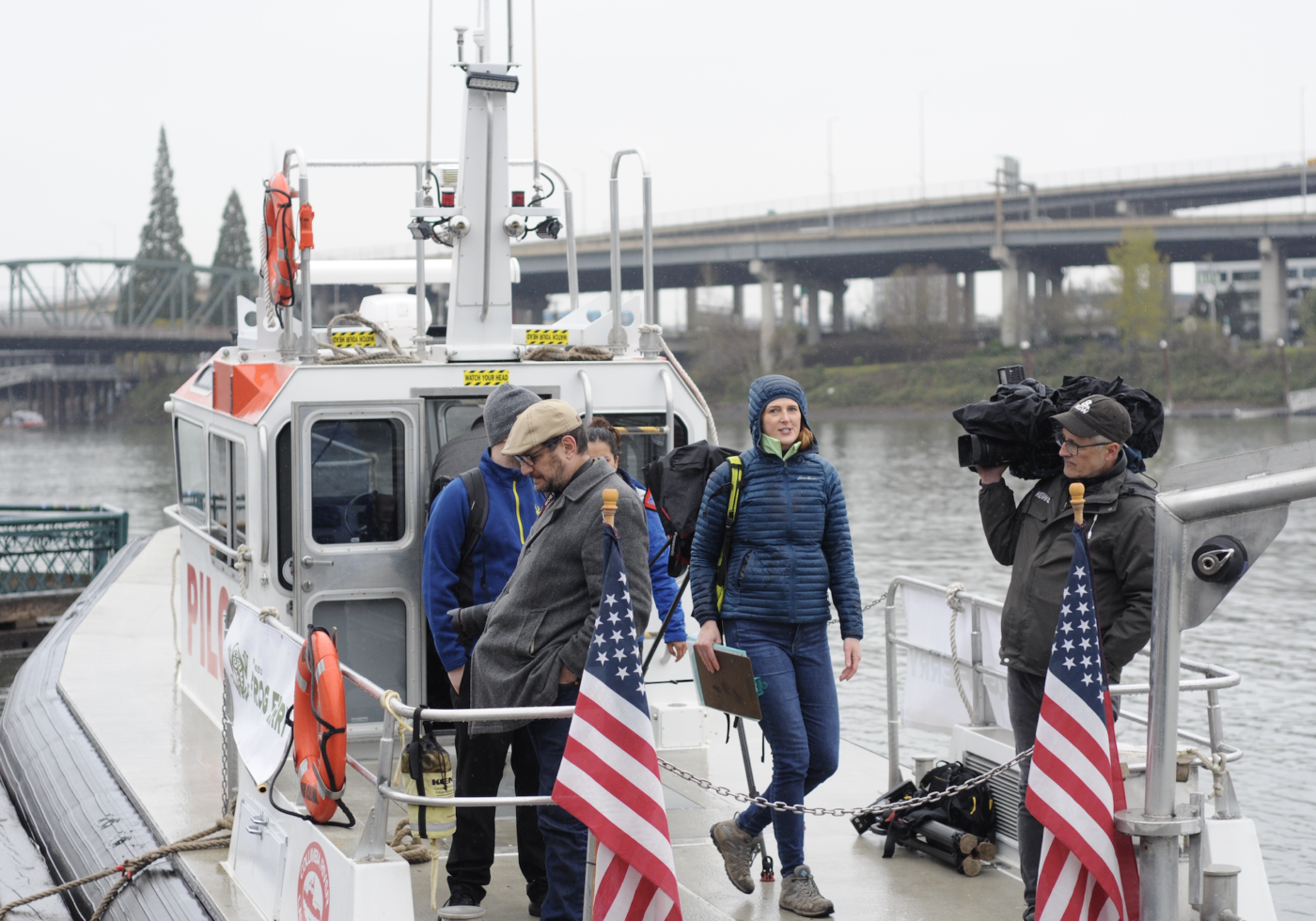
I’ve used all kinds of modes of transportation to get around Portland: bus, MAX, streetcar, car, bike, scooter, aerial tram, my own two feet. And now I can add boat to that list.
On Thursday morning, I accompanied Friends of Frog Ferry (FOFF) for their River Run event, which was intended to give attendees the experience of being aboard a Portland ferry en route between St. Johns and the South Waterfront. While the vessels we rode were small pilot boats that aren’t necessarily representative of what the ferries would look like, the experience provided a good sense of what it’s like to use the Willamette River as a transportation route, which is what the Frog Ferry advocates want Portlanders to embrace.
The event began with a press conference at RiverPlace Marina, where FOFF president and founder Susan Bladholm and board member Nina Byrd spoke about why Portland needs a ferry service. Due to the different (potentially more pro-ferry) mood in City Hall, the tone at this press conference was less politically charged than the one Bladholm held last April. The message, however, remains the same: FOFF needs the city’s support so they can access federal grants for ferry services.
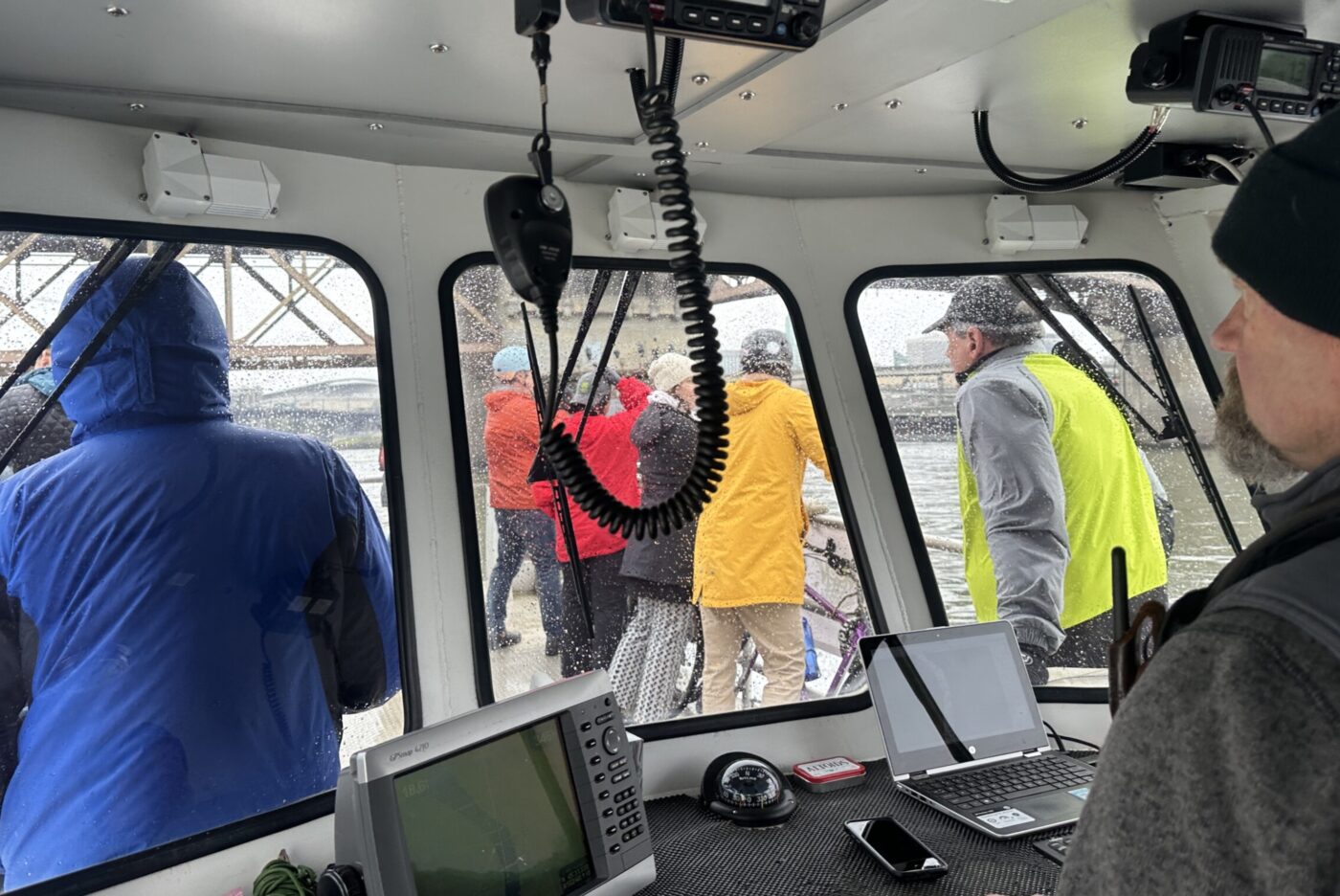
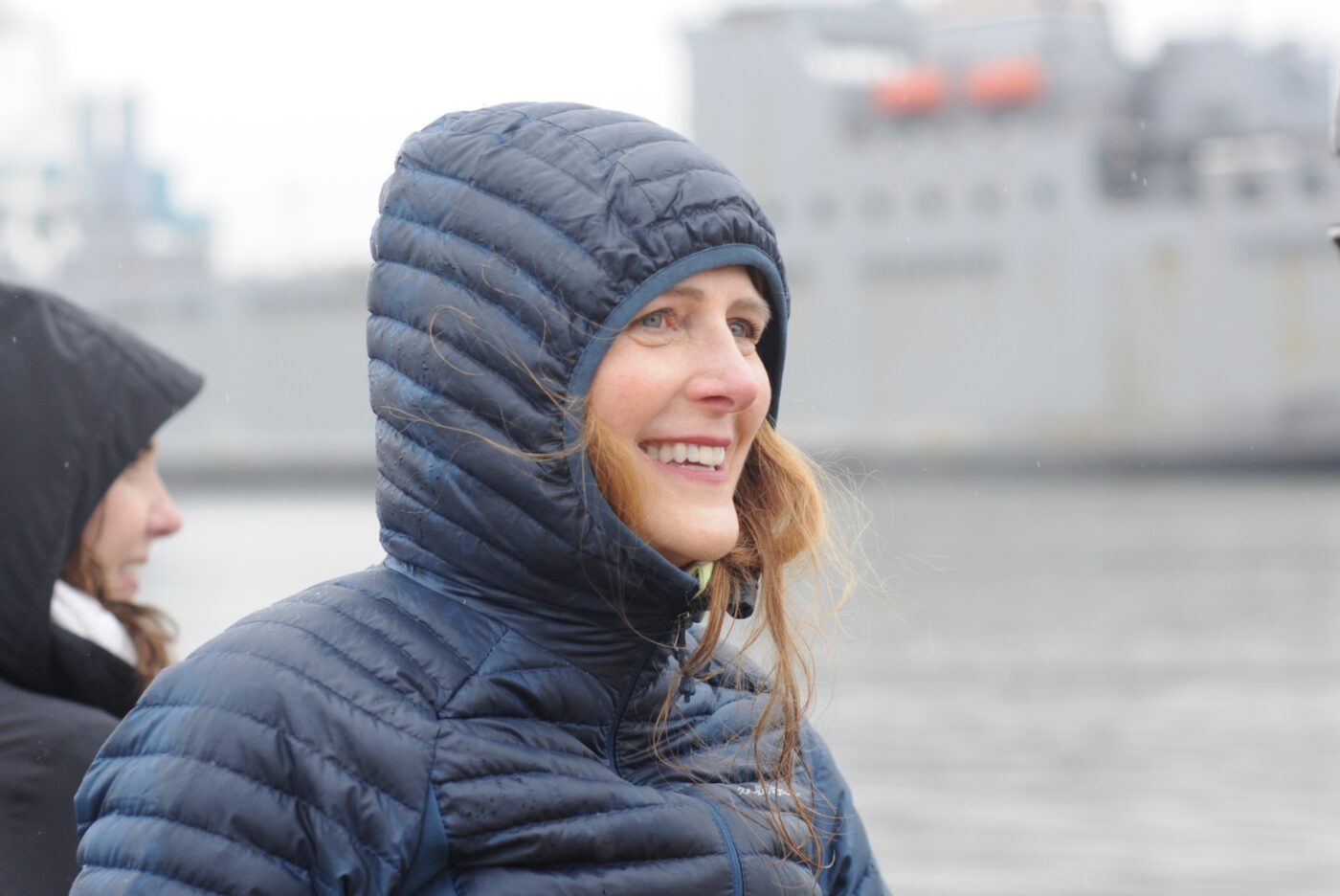
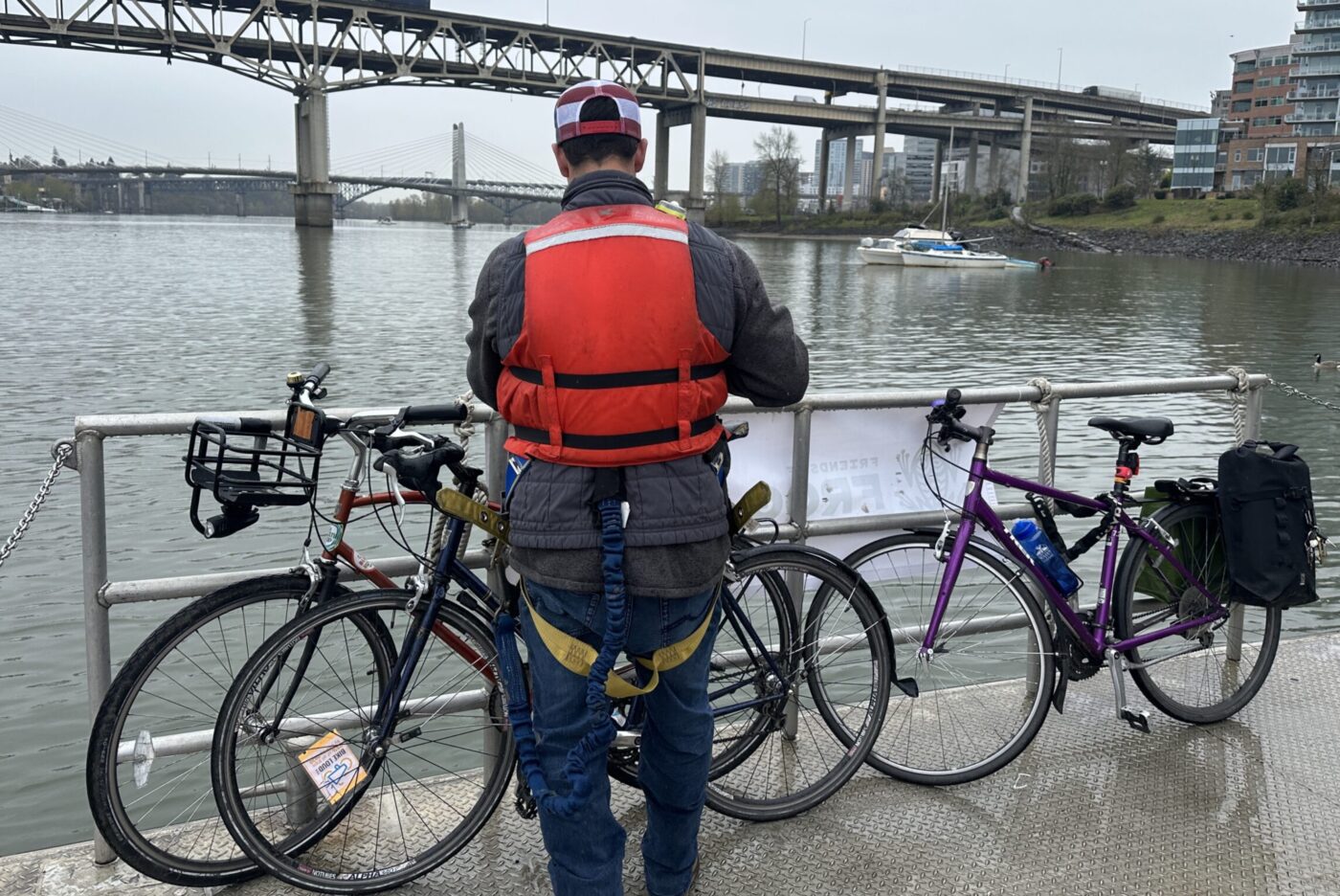
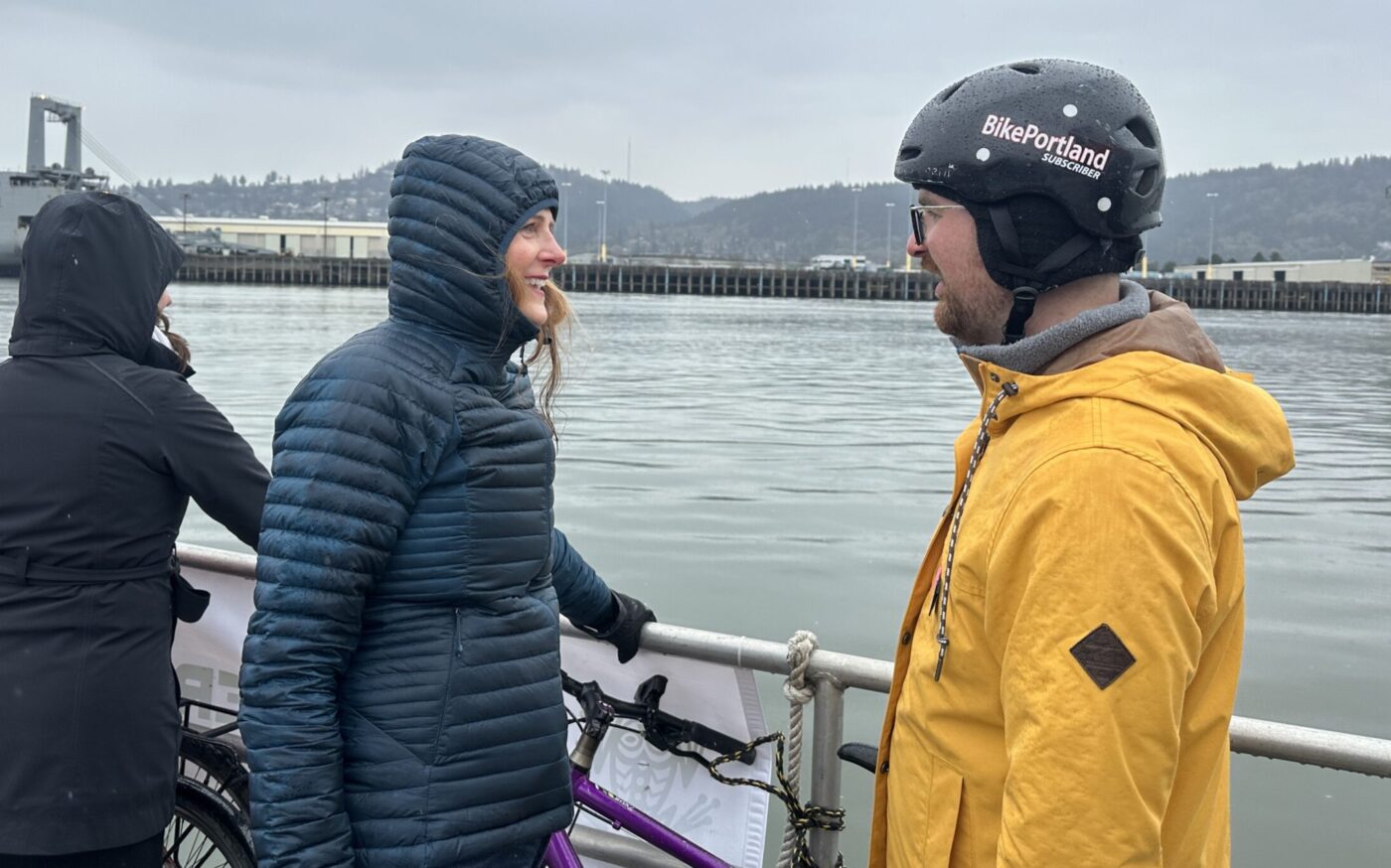
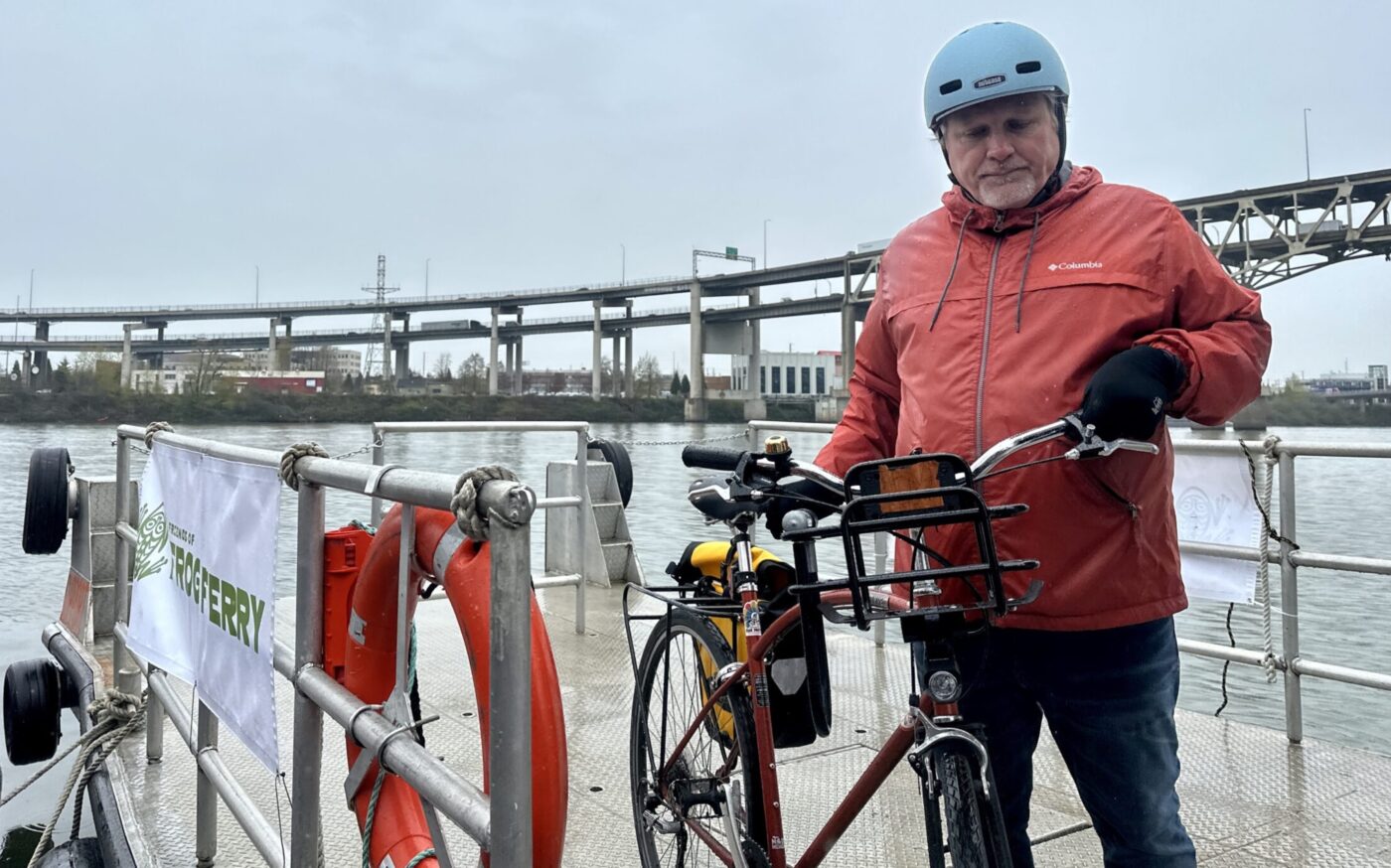
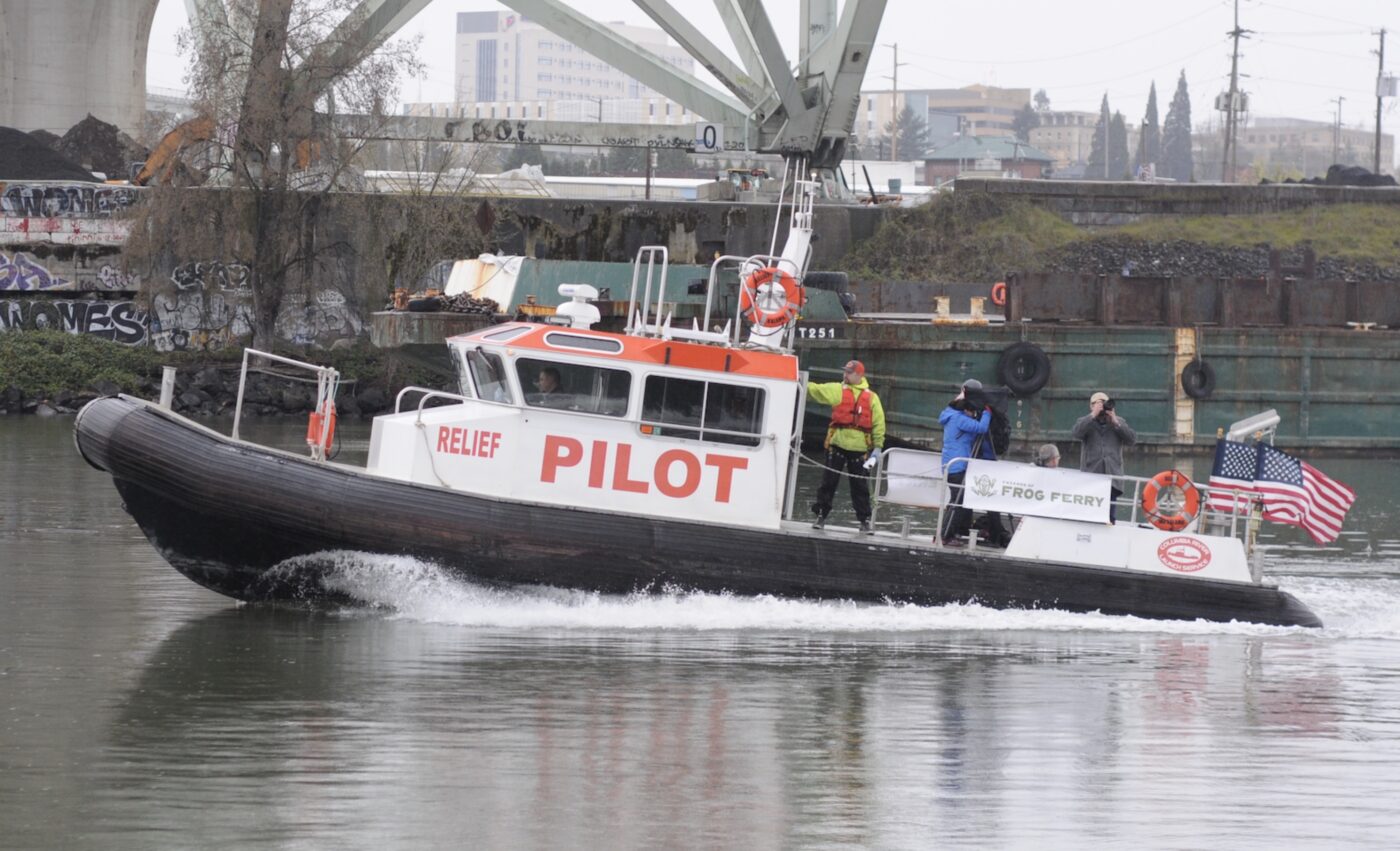

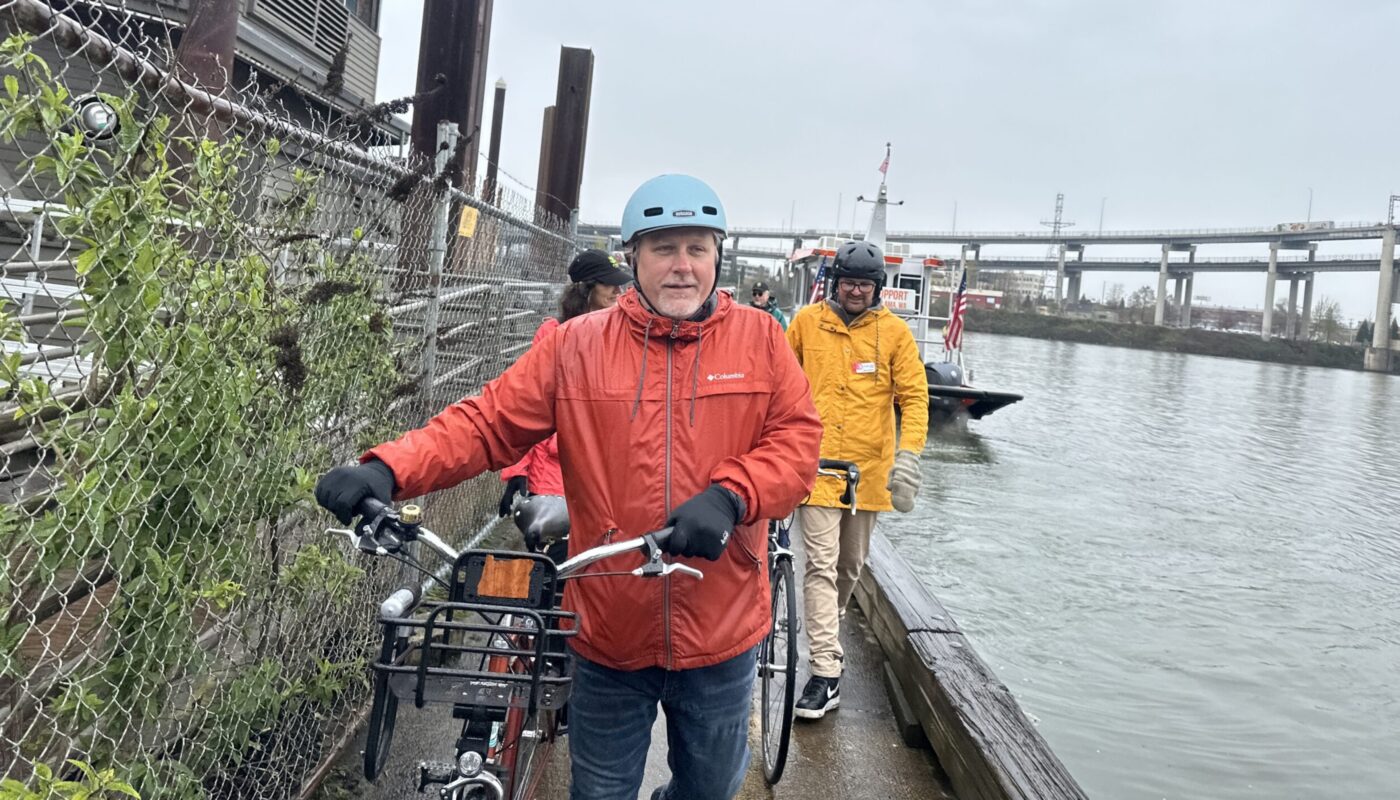
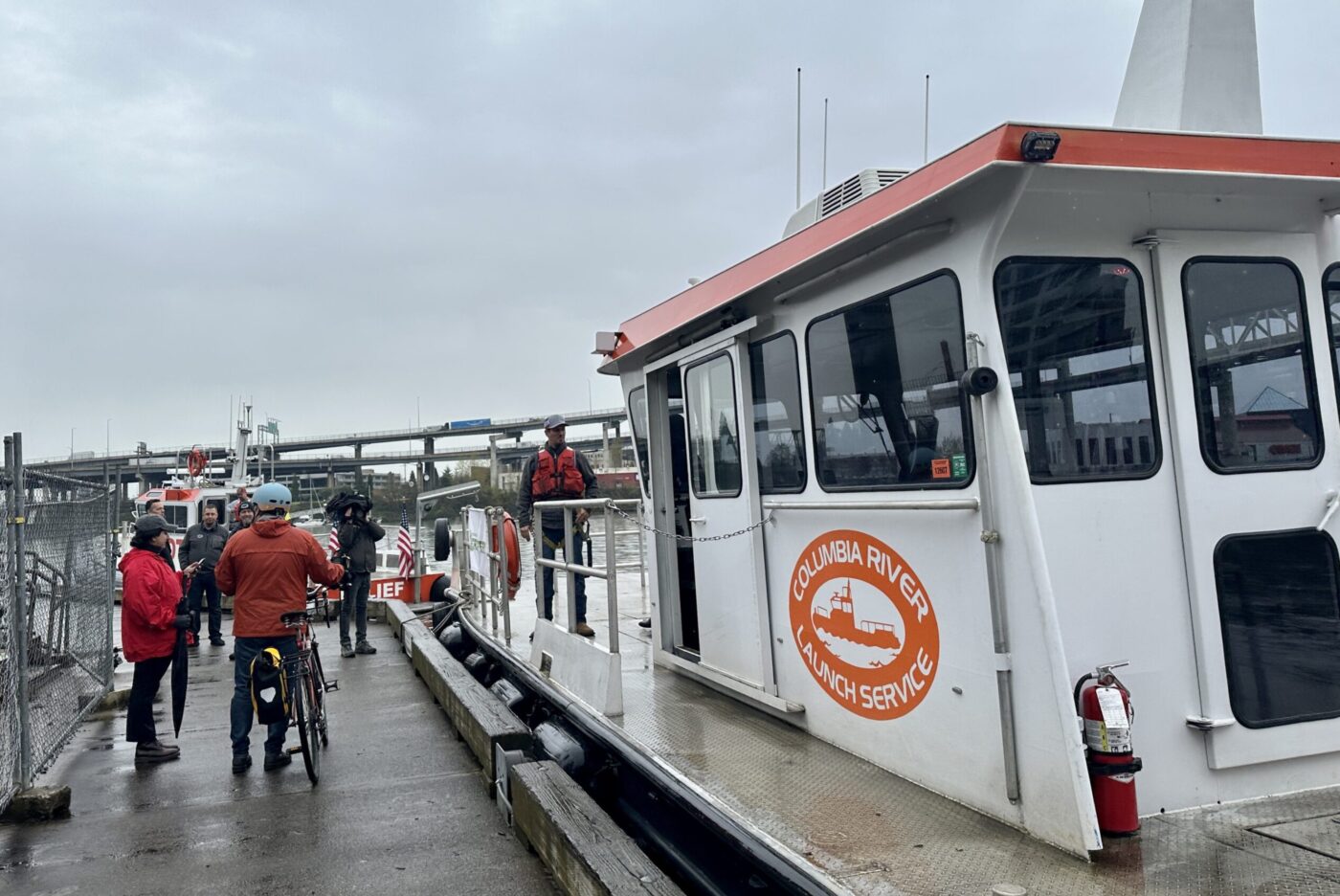
During the press conference, Bladholm and Byrd discussed how a ferry service would be able to revitalize downtown Portland. They also discussed its potential to add to Portland’s multimodal transportation network, specifically pointing out that the ferries would have room for bikes on board.
To underscore this point, Bladholm encouraged me to bring my bike onboard the vessel today. I wasn’t the only one: BikeLoud PDX Chair Kiel Johnson and Friends of the Green Loop Executive Director Keith Jones joined the boat trip, and they carried their bikes along as well. Once we were aboard, one of the captains helped us tie our bikes to the rails of the boat. They were secured snugly, but I imagine there would be a way to secure bikes on the real Frog Ferries that doesn’t require riders to be experts in maritime knot tying.
The boat trip itself was invigorating — more invigorating than you’d probably prefer for a daily commute, but passengers wouldn’t be out on the bow to face the elements on the real Frog Ferries if they’re built. We didn’t go all the way up to Cathedral Park (the boat turned around just short of Swan Island), but I was surprised how quickly we got there. The Frog Ferry plan calls for 25 minute trips between St. Johns and the South Waterfront going 24 knots (about 25 miles per hour). In a larger vessel, this speed would probably feel less thrilling, but on the small pilot boat, it felt like we were going a lot faster.
“The ferry docks have the potential to become real biking hubs.”
– Kiel Johnson, BikeLoud PDX
While this experience was an effective tactic from FOFF to convince people that traveling by water might not be a completely ridiculous idea, many Portlanders still scoff the idea of floating transit.
So, what’s stopping folks from embracing the idea? Johnson and Jones both stand out amongst their peers in Portland’s current transportation advocacy circles because of their support for the project. While others have criticized the idea as too flashy and unrealistic — No More Freeways co-founder and transportation data cruncher Joe Cortright called the proposal a “slow boat to nowhere” — Johnson and Jones think the city should give it a shot.
“I’m supportive of any active transportation project,” Jones told me, adding that he and Bladholm have spoken about how to connect the ferry service to the Green Loop plan that Jones is a primary booster for.
Johnson said that people were also skeptical of other big transportation projects, like the streetcar and aerial tram at Oregon Health and Sciences University, before they came to fruition. Johnson founded the bike valet at the base of the aerial tram and built it into North America’s largest, so he knows a thing or two about turning big ideas into big successes.
“The ferry docks have the potential to become real biking hubs,” Johnson said.
Bladholm said the money used to get the ferry off the ground wouldn’t take away from other active transportation projects. The federal grants FOFF would apply for are reserved specifically for ferry service, so she said we might as well use it for Portland.
“We just have to get people out of cars, however we do it,” she added.
Even if the relationship between ferry proponents and Portland officials is friendlier now, that doesn’t mean the city has the money to spare for an initial investment in the project. Shannon Carney, PBOT Commissioner Mingus Mapps’ transportation liaison, took a ride on the river later in the morning. She told me even though Mapps is a fan of the ferry, he would not be asking City Council to carve out money for the ferry in the Fiscal Year 2023-2024 budget. Instead, they’re going to take a different approach to funding.
“Commissioner Mapps is a Frog Ferry champion and supporter of the project, but it’s a challenging budget year for the city and for PBOT,” Carney said. “He’s working through the process of ensuring that Frog Ferry can be part of the Regional Transportation Plan (RTP), which is critical to receiving federal funding for it.”
As PBOT Commissioner, Mapps has a seat on the Metro Joint Policy Advisory Committee on Transportation (JPACT), the body that helps craft the RTP project list. A draft version of that list shared at their meeting Thursday morning (below) includes a $12 million line-item for a “passenger ferry pilot” that would be built with support from the Federal Transit Administration’s Passenger Ferry Grant Program.

Regardless of your position on this project, there’s something very alluring about being on the water. It’s a whole different world out there. It’s hard to tell from the shore, but there’s a lot of action taking place on the Willamette, and it was cool to feel like a part of that community, even if just for a bit. Even though I see the river almost every day, I’ve never really thought about being out on it like this.
Others felt similarly.
“One of the things I love about biking is the different perspective it provides. This will provide a new perspective of the city,” Johnson said.
It’s very possible that my positive experience on the boat this morning doesn’t mean Portland needs a ferry service, just that I should learn how to sail. Ultimately, it will be up to Portland City Council to make that decision. And with Mapps solidly behind it, that might happen sooner than we think.
If Frog Ferry receives a federal grant, Bladholm says the first one could be on the water as early 2025.


